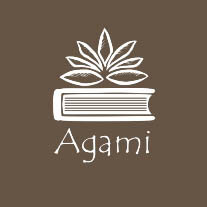Dr. Babu Rahman
I got my first taste of "doing good" on a global scale when i was in graduate school. In 1989, there had been another cyclone in Bangladesh. This one had been particularly devastating, and had made international headlines. I was at a point in my life where I was particularly motivated to do something, and had the means to do so. Mind you, I had only been to Bangladesh twice before in my life, and couldn't speak Bengali. But this was the influence of my Amu, to always look to help others less fortunate.
I crafted a few simple flyers, and posted them (yes, paper) around campus. I focused on Etcheverry Hall, the engineering building, and my dorm, the International House (I-House). Email was still relatively new, so I used it only sparingly. Before I knew it, I had amassed a 'fortune' of close to $1500. At this point, I was uncertain of whom to give the money to. I spoke to a local Bangladeshi organization, and they too were uncertain. However, they referred me to a few national organizations. Given the lack of any other clear alternatives, I hesitantly sent the money to the organization in Washington. Needless to say, I don't know where the money ultimately went. I don't know how much of it went to the affected people, vs going to overhead. However, it was invigorating and rewarding doing something for the helpless, for those ravaged by the cyclone. My desire to have an accountable and transparent impact with donated money drove me to start my own organization.
I got my first taste of philanthropy, and it lit a fire in me. I tried to recruit other members of the Bangladeshi community, but to no avail. At the same time, my focus for philanthropy shifted from disaster relief to education. Education had always been the most important thing in our family. It had saved our family. My grandfather (Dada) was an extremely smart student. However, during his school years, he contracted a severe illness and missed a year of school. He never fully caught up and did not fulfill his potential. However, he made sure that his children studied. All of his children were educated to some degree. Some were exceptionally bright. My Abu, being the oldest, was pushed to complete his studies. Because of his advanced education, Abu was able to forge a career in Canada. Abu made sure to take care of his siblings as well as he could. Many of his siblings thus enjoyed successful careers and lives, due to their education. After much discussion and thought, I became convinced that education alone was the strongest enabler of lasting socio-economic change. And this education had to be part of a holistic solution that hopefully would uplift the lives of the underprivileged in a truly meaningful way. That's why we expanded education to include 'basic' education, public health, and vocational training to allow for income generation.
Around 1990, during one of my visits to Ottawa to see my parents, I badgered my Abu to try to come up with a name that would capture the essence of what we were trying to do - provide hope, promise a better future, and create lasting change. After a lot of suggestions, we settled on Agami. "Future". Exactly what we wanted to create in Bangladesh. My earlier relief work also taught me some other lessons. I wanted to create my own charity so that I had visibility all the way to the bottom line. I wanted to KNOW that the money impacted the children directly. I didn't want any religious or political meddling in the process. Both of those forces tend to get in the way of progress for the children. I also wanted the organization to be purely volunteer-based. I was frustrated with how much graft ("ghoosh") was a part of life, and thus how little of the money actually made it to the children. And, as James Doolittle (famous American aviation pioneer) said, "Nothing beats stronger than the heart of a volunteer." All these forces led to the definition of Agami's Core Values.
In 2002, my Abu introduced me to Dr. Sabir Majumder and Dr. Mahmudul Hassan. They were running a magazine called Porshi, and my Abu was a frequent contributor. I talked to them about Agami, and they were on board wholeheartedly. Next year, we formally incorporated Agami as an IRS 501(c)3 organization. This was the birth of Agami 2.0. Our first project had a total budget of $1500. It was for a school in Comilla. This was my mother's hometown. This was the perfect start. And the rest is history...
Babu S. Rahman, Ph.D.
Agami Co-Founder

